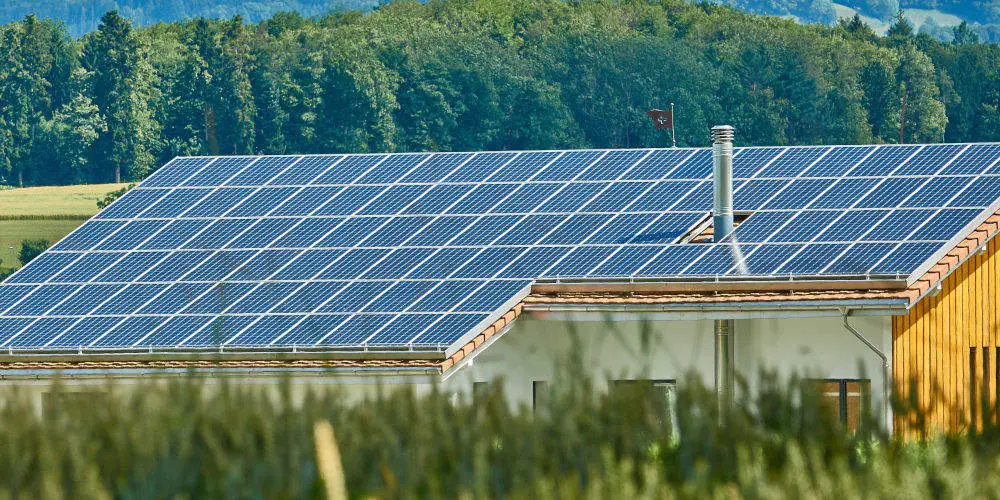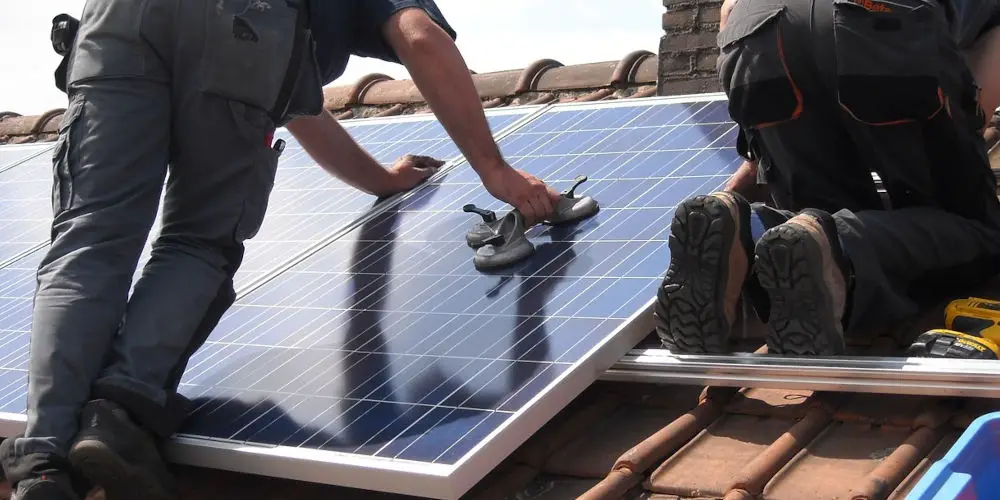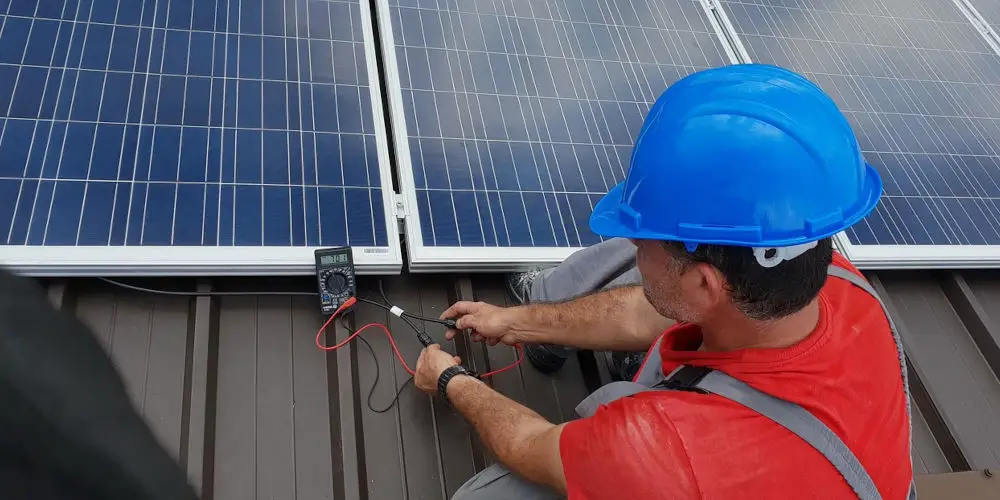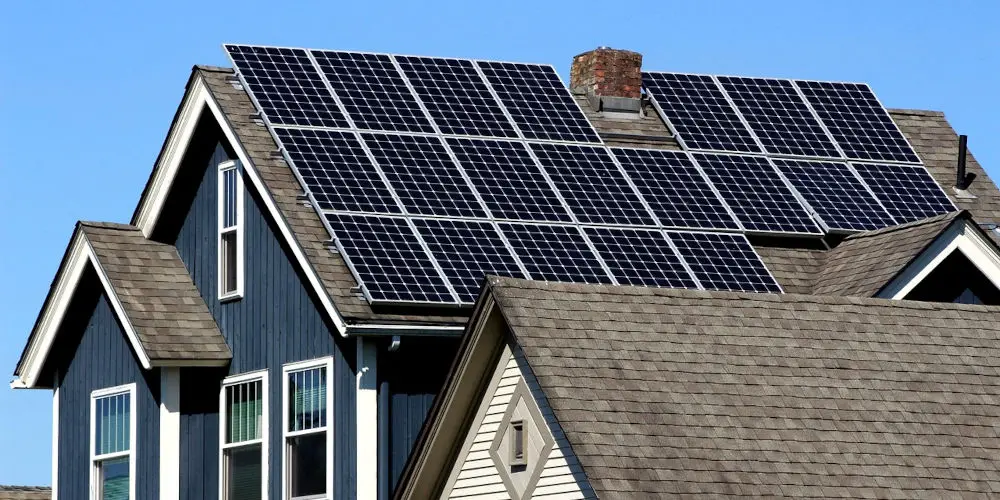Can you recycle solar panels or are they eco-waste?

Many solar panels currently in use will stop working in 2030 due to their 25- or 30-year lifespan. So, it’s vital to consider if we can recycle solar panels, even if only partially. Otherwise, we might have an eco-disaster on our hands.
The good news is that solar panels are recyclable. However, the UK government hasn’t invested in the infrastructure to make recycling them at scale possible or easy.
“It’s going to be a waste mountain by 2050, unless we get recycling chains going now,” says Ute Collier, deputy director of the International Renewable Energy Agency (IRENA).
Most of us agree that increasing the number of solar panels is a great idea, especially if that allows us to reduce our need for fossil fuels and generate cheaper energy.
By 2050, IRENA estimates global solar power will grow from 222 gigawatts (GW) in 2015 to an impressive 4,500 GW, meaning the sun will be responsible for 16% of global electricity.
However, we still need to consider how to best deal with solar panels after they stop being useful. One way to solve the impending issues is to recycle. But can you recycle solar panels without harming the environment or creating additional problems?
Can you recycle solar panels?
Let’s start with a basic question: can you recycle solar panels? They can be as solar panels are constructed almost entirely from aluminium, glass, and silicon. All of these materials easily break down and can be used again.
So your solar panels stay green after their lifespan expires. In fact, it’s very easy to separate the panels into different materials, making the recycling process even simpler.
Currently, we lack the infrastructure to recycle solar panels at scale. However, with the right solution, we should be able to produce a new array of panels from the ones we’re currently using on our properties.

What’s a solar panel’s typical lifespan?
After starting life in a factory, most solar panels spend their 25- to 35-year lifespan starting at the sun and next need replacing. You probably understand this timeline but still question what happens next.
You want to know if we can reuse the materials that make up your solar panels so they don’t end up in landfill.
What causes them to die?
According to research by the International Energy Agency (IEA) in 2014, there are four key reasons why solar panels stop working and need replacing:
- Optical failure (20% of cases)
- Power loss (19% of cases)
- J-box and cable failure (19% of cases)
- Glass breakage (10% of cases)
Of course, many other minor issues stop them from working but these are the major reasons. As the majority of solar panels last for decades, the cost of installing a system is affordable.
Solar panels don’t have any moving parts and so have no easily damaged ‘weak spots’. So they last a long time. Another element to consider is how surprisingly easy they are to fix. A local installer can solve most problems within a couple of hours.
Over their lifespan, solar panels lose their efficiency, but it’s very slow and usually only starts to happen after the first 20-25 years. So overall, they are a worthwhile investment.

Exploring the solar panel recycling process
Let’s take a look inside a solar panel recycling centre to better understand how we can reuse all of the materials.
Silicon-based vs thin-film
The solar power industry is dominated by two types of panels; silicon-based (92% market share) and thin-film (7% market share). The recycling process is a little different depending on the panel type, so we’ll explore both.
Silicon-based solar panel recycling
As solar panels are composed of several different parts, these need to be separated by material type. It starts with the aluminium frame and glass casing, which are disassembled. 100% of the aluminium and 95% of the glass is reused.
Next, is thermal processing. The panels are heated to 500°C, which evaporates the small plastic components. It also allows for the cell modules to be physically separated with little effort. We can reuse about 80% of the cell modules.
Finally, the silicon wafers. These are etched away and smelted into reusable slabs. Around 85% of the silicon goes back into making new solar panels. Sadly, 15% of it is lost in the process. But that’s not bad.
Thin-film solar panel recycling
Recycling thin-film solar panels requires more effort. The panels are thrown into a shredder, followed by a hammermill. Each panel must be reduced to 4-5mm pieces allowing the lamination that keeps the materials together breaks.
Unlike the process for silicon-based panels, the end result is a mixture of solid and liquid materials. To separate them, a huge rotating screw is used.
Next, the semiconductor material (usually Cadmium telluride, CdTe, or Copper indium gallium selenide, CIGS) is removed from the glass with acid and peroxide, and the glass is rinsed with water.
We can reuse around 95% of the semiconductor material and 90% of the glass. Thin-film solar panel recycling rescues more of the semiconductor material, but less of the glass.
An element we’re yet to consider is chemical toxicity. There are issues surrounding the toxicity of cadmium and its threat to the environment. We consider silicon-based solar panels are generally the more eco-friendly option when it comes to recycling.
What can you do with dead solar panels?
Don’t send them off to landfill without a second thought. To sell solar systems in the UK, every company (importer or manufacturer) in the UK must join a Producer Compliance Scheme (PCS). The most common scheme is the Government-approved PV CYCLE.
These schemes ensure that all solar panels are collected and recycled properly. So you have nothing to worry about or need to jump through several hoops to get your solar panels recycled.
Under EU regulations, your solar panel installer is legally obliged to take your defunct solar panels off you, or at least fund a Distributor Take-back Scheme (DTS).
So, you’ll want to call your solar panel installer as they are best to advise you on what to do. They’ll likely take your panels to a Dedicated Collection Facility (check out the DCF database to find your nearest location) and from there, your panels will go to a recycling plant.
Many recycling plants handle all kinds of materials, but several only deal with solar panels. For example, in July 2018, PV CYCLE collaborated with French waste management company Veolia to open Europe’s first dedicated solar panel recycling plant.
We hope this is the first of many, especially given the impending millions of panels that are set to expire in 2023. The lack of specialistic facilities stems from the fact that currently there is only a tiny demand to be able to recycle solar panels.

How much does solar panel recycling cost?
There is no cost for consumers to recycle their solar panels. As the majority of the materials can be recycled into new panels, manufacturers are happy to do it for free as they can profit from the new panels.
Actually, manufacturers prefer to recycle as the cost of manufacturing new panels from scratch is significantly higher.
Why you should care about solar panel recycling?
You now have a clear idea of why recycling solar panels is worthwhile.
The main reason is they aren’t going to landfill. By reusing materials, we can use less of the natural resources, which are dwindling, including gallium and indium. These two rare elements are quickly depleting, so reusing them is worthwhile.
It’s cheaper to manufacture solar panels from reused materials. IRENA estimates that we could recover $450 million in raw materials from solar panels by 2030, which could fund around 60 million new solar panels.
The solar industry has and will create 1000s of sustainable jobs. Add the 1000s of jobs it’ll add when they start recycling panels, and you’ll realise it’s a good industry to be involved with. And that’s why you’ll want to ensure you recycle solar panels!




